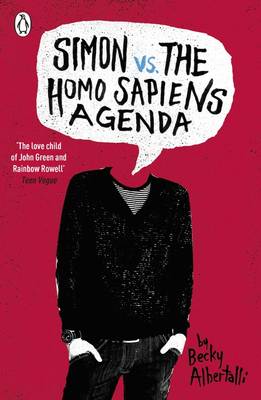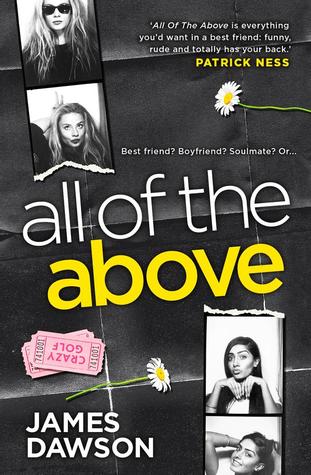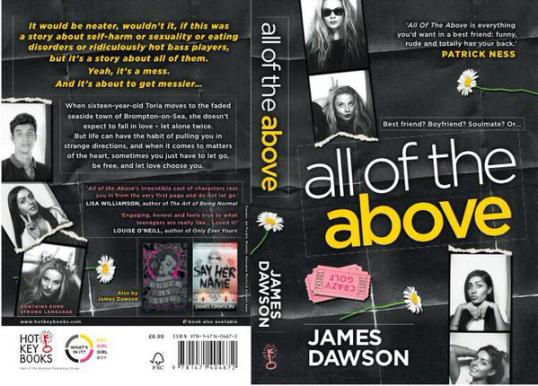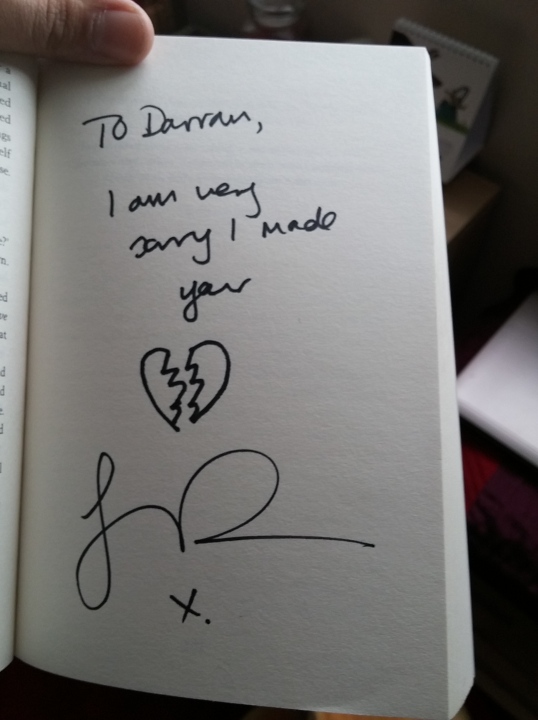What is UKYA? I mean, what does that even mean – UKYA? Okay, I admit, the answer is kinda self evident. It’s Young Adult Books written by UK based authors. The end. BLOG OVER.
Well, I suppose the really important question is – why do I choose to read so much UKYA? I’m a 27 year old “man” who did a Crime Scene Sciences degree, and my other hobbies include video games and abrasive, angry and deliberately esoteric music.

With a stupid face.
There’s a few different answers to that question – a few different threads of happenstance that lead to the person I am today (not a great person, but I suppose I’m okay – if a bit wordy). I took on a Christmas Job as a bookseller for Waterstones, rediscovered my love of Children’s Fiction from my own childhood, & hit upon one of the only things I’ve ever felt like I’ve been good at – sharing a love of stories. It was from this little platform that I discovered Twitter, and fell headfirst into the UKYA community that was so brilliantly welcoming. But we’ll talk more about that in a moment. The real reason I grew such a infectious passion for UKYA novels comes down to a simple, straightforward & obvious answer – The books. Duh.
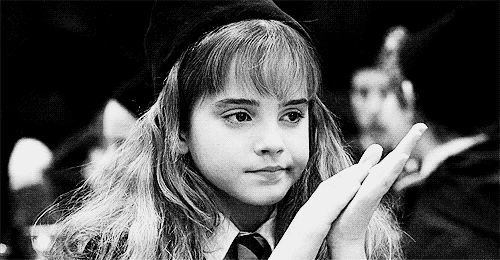
I guess I couldn’t tell you what the very first UKYA novel was I read… I mean, technically it was probably something like Northern Lights by Philip Pullman, but when I finally started picking up the current wave of authors writing, I couldn’t help but devour as many books as my staff discount card could take. The first proof I requested was Will Hill‘s Department 19, and I think that’s a great example of where UKYA triumphs over the American equivalents. It was just after the real peak of Twilight fever, where vampire fiction was all Anne Rice love and soft, gentle sighs of longing into the lonely night, and here was a story of action, despair and teen angst, driven by a mix of high-octane, high-violence and classical horror overtones (it weaves the works of Stoker & Shelly into the narratives perfectly). It took the try-hard nature of the whole vampire phenomenon and went “Nah, vampires kill people. Let’s take this back to its horror roots.” and I loved it for that. After that, I tried anything I could get my hands on, contemporary, science fiction, horror, I’ll give anything a try. Still, though, the home-grown authors really stood head and shoulders above the rest. Is it because I find the settings, the characters and the voices much more familiar than their overseas counterparts? I’d be lying if I said that wasn’t a great start when it comes to engaging with a story, but I think it comes down to more than that.
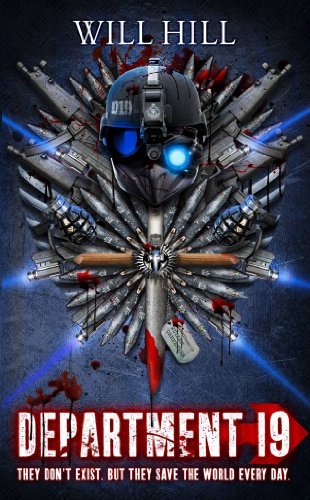
Such a GREAT series!
In the UK, we have a great sense of self-deprication. Something about the eternal, overcast, rainsoaked environment creates a sense of hopeful, but pessimistic reality. We knows things can get better, but they’ll get a lot worse and they’ll require a lot of work, pain and rain to make it happen. This is brilliantly reflected in the dark, gritty, but oddly wry and quirky stories by authors like Tanya Byrne (Follow Me Down is a superb crime-noir with twists of humour throughout) and Alice Oseman (her debut Solitaire is brilliantly despondent and hilarious all in the same page). UKYA can get seriously dark though, and I feel like it pulls less punches when it decides to get bleak and challenging than other YA out there – Carnegie Medal winning The Bunker Diary by Kevin Brooks is a stellar example of an unrelentingly bleak and powerful novel that never romanticises the horrific predicament of its characters.
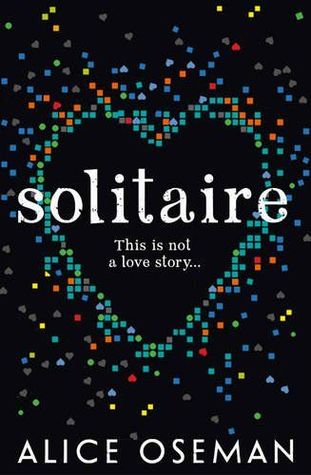
One of the nest debuts of the last year.
I just feel like UKYA novels get realism and the down-to-Earth nature of teenagers down on paper much better than any other books. The honest, ugly and often uncomfortable When Mr. Dog Bites by Brian Conaghan, or the heartfelt and emotionally articulate Being Billy by Phil Earle (an absolute shining star of the community, by the way) are testaments to how authors in the UK are willing to look at complex issues without a rose-tinted lens, and they’re so much more valuable for it. And it isn’t just mental health, either – with the global rise of the We Need Diverse Books mission, UKYA authors are moving forward leaps and bounds when it comes to minority representation in their novels. Malorie Blackman‘s Noughts & Crosses series was just the beginning (using Dystopia to examine racial segregation); Louise O’Neill‘s Only Ever Yours, winner of the UK’s first ever YA Book Award, examines the importance of gender equality by using a twisted dystopian universe, and the stunningly beautiful The Art of Being Normal by Lisa Williamson makes the bold but vital move of tackling the difficult and underrepresented topic of Transgender in Teenagers. Even wonderful works by Patrick Ness drop gay characters into stories where their sexuality is simply a part of their character as opposed to the point of the story (More Than This), and Non Pratt who’s upcoming novel Remix has two racially diverse main characters without it being a big deal in the slightest. James Dawson‘s subtle use of characters, as well as his outspoken support of diversity in fiction is just one of the hundreds of UK based writers who are working hard to include minorities in their work. I don’t for a second think that there isn’t still work to do, but I feel a great sense of pride that our shores are producing such fantastic stories with such a concentrated effort towards letting all young people see characters like them int he books they’re reafing.
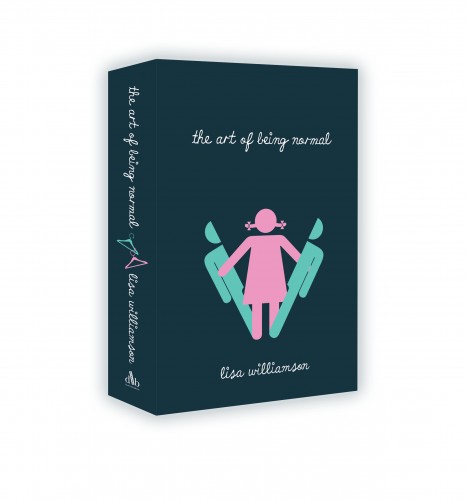
Such an IMPORTANT BOOK.
The final thing I want to talk about when it comes to UKYA books though, is their dialogue, their narrative voice and the way their characters interact. One of the biggest reasons I’ve struggled with falling totally in love with John Green novels is because to me, lines like – “My thoughts are stars I cannot fathom into constellations…” – sounds nothing at all like me and my friends did as teenagers. That smooth, poetic writing works in points, but I think it alienates me from the characters in a story. I’m pretty much an idiot, and I prefer the characters I read about to stumble over their words and say the wrong things. Non Pratt‘s debut novel, Trouble, uses such realistic, honest back and forth between characters that I laughed and cried constantly, and connected with the main characters on a very fundamental level. Matthew Crow‘s In Bloom managed to be full of sudden bursts of humour and stupidity whilst also containing one of the most powerfully moving sentences I’ve ever read in a book. Dawn O’Porter with Paper Aeroplanes (and its sequel Goose), James Dawson‘s Under My Skin, Tape by Steve Camden, Geekhood by Andy Robb and Geek Girl by Holly Smale – all these books have characters who willfully make bad choices, or make stupid decisions. They make mistakes and they say the wrong things. Unlike any other country, I feel like the UK’s YA is full of less than perfect characters, and for teenagers growing up and discovering their own faults, flaws and quirks, making their own mistakes and becoming their own diverse people, that’s such an important thing to see. UKYA lets its readers know that it’s okay to be less than perfect. It’s okay to try something stupid. It’s okay to mess it up.
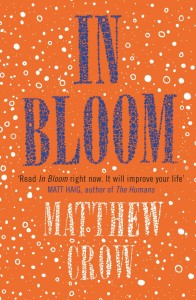
Hilarious & Heartbreaking.
The UKYA online community (search #UKYA, #ukyachat and @ProjectUKYA on Twitter) is the passion and the brainchild of the hugely talented and driven Lucy Powrie, herself a teenage blogger, and she’s managed to create a fun, inviting atmosphere through which I’ve met some wonderful people and made some amazing friends with whom I can share my excitement and joy about these wonderfully accessible books. The wonder of social media also means that I can have conversations with the authors I’m enjoying right now – If 14 year old Darran could’ve chatted with Philip Pullman about His Dark Materials, I’d’ve exploded with excitement, and yet now I often chat back and forth with people I have huge amounts of awe and respect for. For someone so far in the North of the country, away from the world of publishing (which is all frustratingly London based), the UKYA community has become a way for me to be involved in the spreading the love of great books and keeping up to date with new authors and debuts that I might otherwise have missed, and the sense of welcome belonging is really important to me.
With initiatives like YALC returning for a second year at London Film & Comic-con, The YA Book Prize and so much more, I honestly feel like we’re just stepping into a golden age for UKYA literature, and I’m glad to be able to say I’ve been involved in a little way.
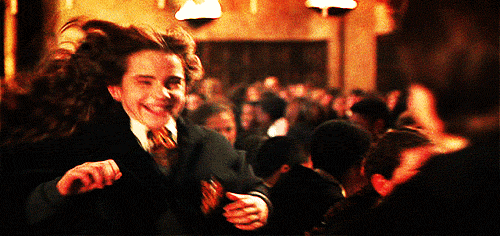
God, sorry for rambling on for so so long. I did say I was wordy though, up there at the beginning. If you bothered reading all of this… Then erm… THANK YOU AND I AM SORRY.
D
